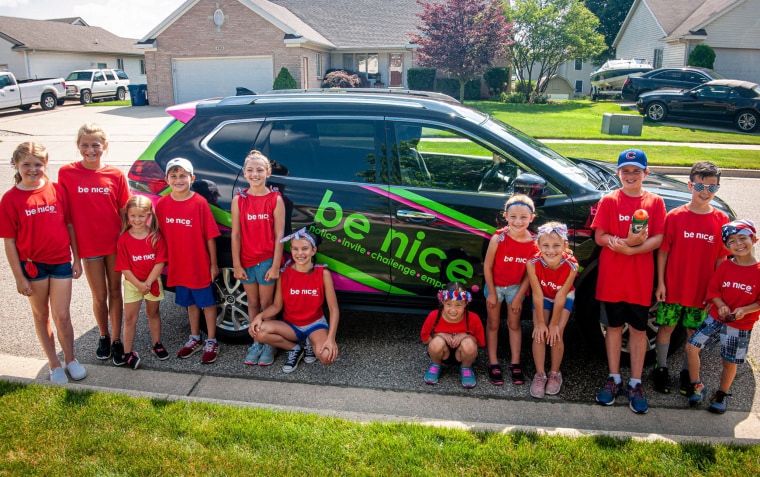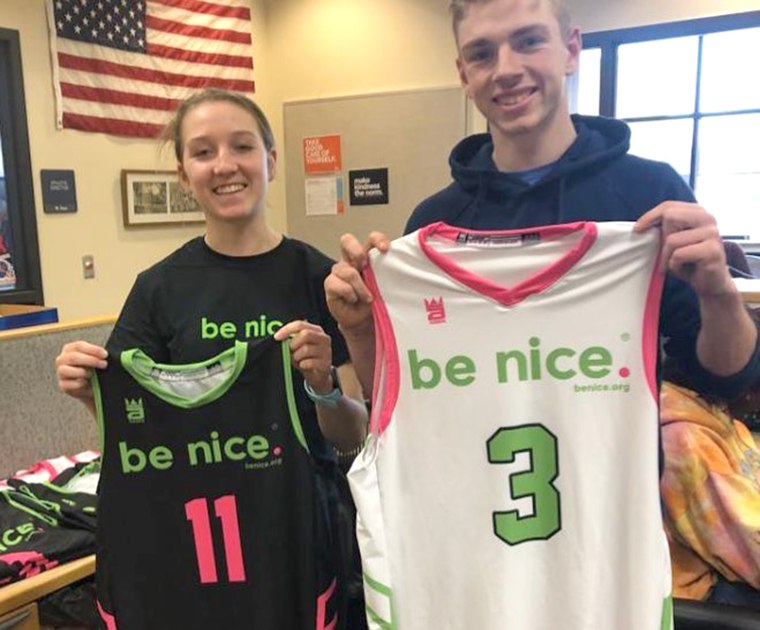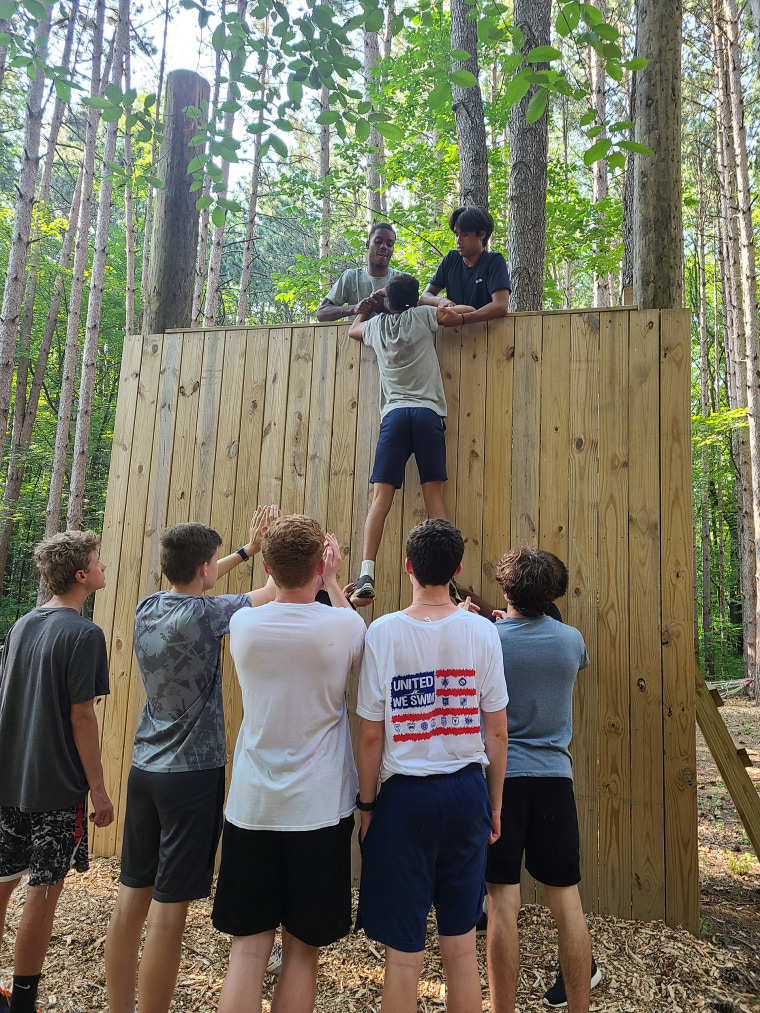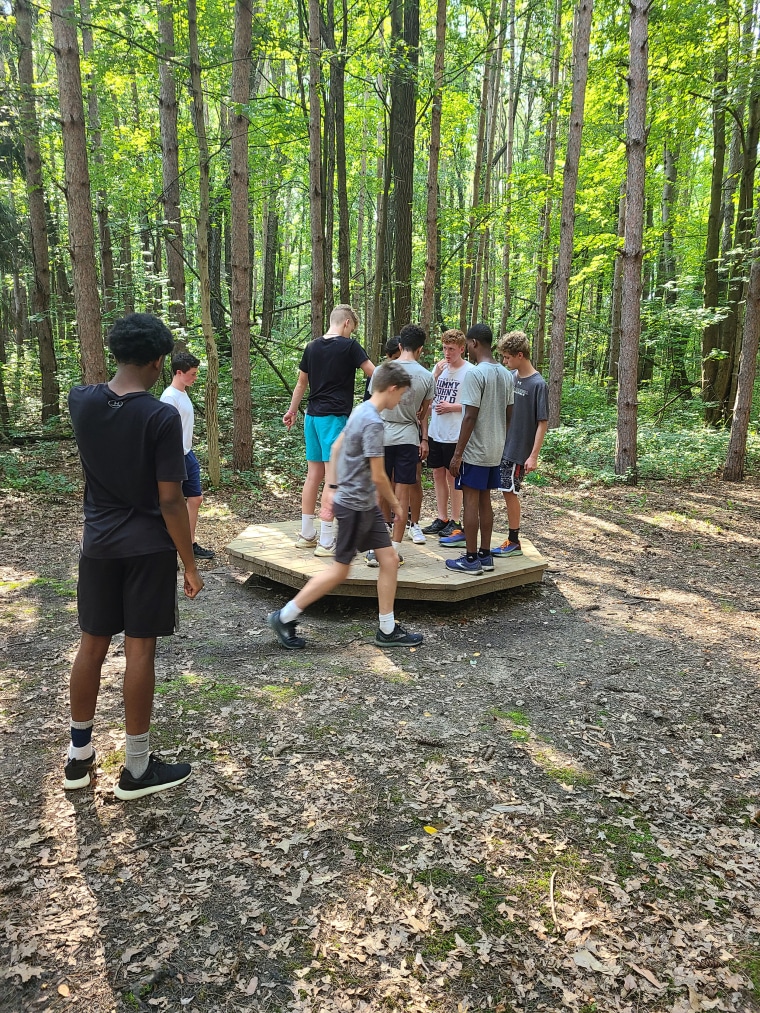In some ways, Chris Mutebi, a senior at University of Detroit Jesuit High School, felt like he didn’t have a junior year. The COVID-19 pandemic wrecked in-person classes, interfered in the football season and canceled hang outs with friends. All that led to some feelings of stress.
“Being able to hang out with your friends, we’re teenagers, this is our most social time of our lives,” he told Kate Snow, NBC News senior national correspondent. “I think everybody (is) missing that … lifetime of opportunity to expand that. I think that took a big toll on everybody.”

While Mutebi acknowledges the difficulties he and his classmates faced, he also found a bright side to the pandemic.
“I look at it like a blessing. So I had more opportunities to reflect,” he said. “Then as I step out into the real world, I’m more prepared.”
Mutebi is one of the thousands of students in Michigan who benefit from a program, Be Nice — offered by the Mental Health Foundation of Western Michigan — that teaches middle and high school coaches how to spot mental health changes and help students.
Mutebi remembers football coach Matt Lewis as an early adopter of Be Nice and encouraging his players to be more open about their feelings. Nice isn’t just a way to behave. It is also a pneumonic that helps coaches understand what to do: “Notice, Invite, Challenge and Empower.”
“It’s real simple. ‘Notice,’ notice what is good, what is right so I can notice what is different. ‘Invite’ myself to start a conversation, invite myself to let the person know what I noticed in them that I see that’s not typical behavior … ‘Challenge’ that person to talk about it. Challenge that person to possibly get resources and at that point I’m going to give resources,” Christy Buck, the executive director of the Mental Health Foundation of Western Michigan, told Snow. “‘E’ is for ‘Empowerment’ … empowering that individual with resiliency, acknowledging what protective factors they already have within themselves.”

Buck felt compelled to start to the “upstream suicide prevention plan” after the death by suicide of college student Tyler Clementi in 2010 following cyberbullying. The organization wanted to give people tangible ways to help someone in crisis.
“There’s four simple steps to recognize depression and prevent suicide,” Buck explained.
The Michigan High School Athletic Association had reached out to Buck’s organization about three years ago when it decided to train coaches about mental health in middle school and high school athletes. The organization believed coaches could reach some children in ways that even parents couldn’t.
“We were looking at a group of individuals that have huge influence without a school and for coaches, they are also mentors. These people spend a lot of … time with kids outside the classroom,” Buck said. “With a coach, recognizing and noticing the onset of something different that’s happening with my student athlete then maybe I can go acknowledge that with the teachers in the building.”

The hope is that the more people tuned into mental health, the more likely a student is to get support and help before they’re in a crisis. The athletes certainly noticed a difference. Mutebi appreciated what Lewis did with the football team.
“I would say (it’s) just being more engaged,” Mutebi said. “Just sitting down as a team and being able to be open with him from player to player. Just being able to come up to him and really tell him anything.”
Lewis said it works because coaches already feel a closeness with their players.
“It goes back to those relationships,” he told Snow. “We want to know about them, not just as an athlete, not just as an academic, but what’s going on in their life? I think when you build those relationships, you start to build the trust."
Mutebi isn’t the only student who feels like he benefits from Lewis' dedication to his athletes’ well-being. Caleb Knuth has dyslexia and found online pandemic learning challenging.
“Being virtual, it was just not the best thing for me because I can’t really stare at a computer screen all day,” he said. “It was just tedious and so tolling on me, I couldn’t understand anything.”

When Knuth began opening up to teammates, family members and friends he felt some relief. But having the support from Lewis made the transition to his junior year a bit easier.
“He’s really helped his junior class,” Knuth said. “We’ve had a lot of struggles. We lost a teammate and that really took a toll on all of us differently. So, I would say that he’s been looking out for us, asking how we’re doing on a regular basis.”